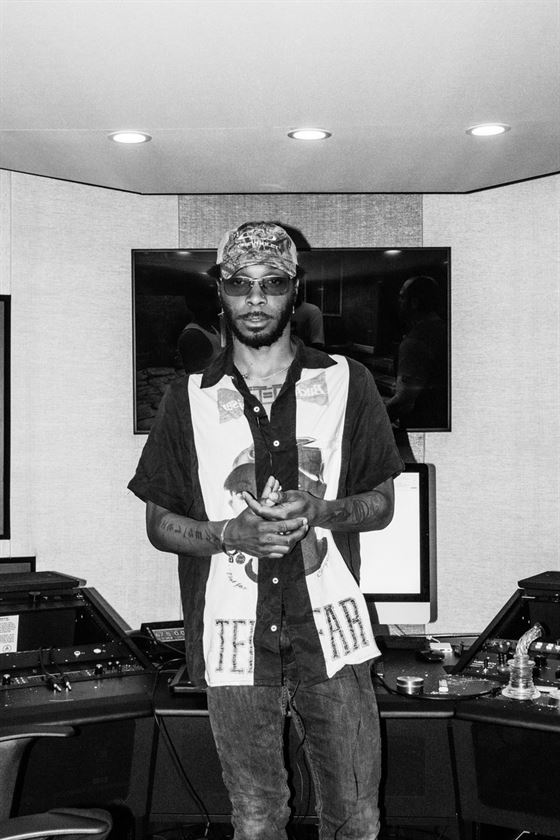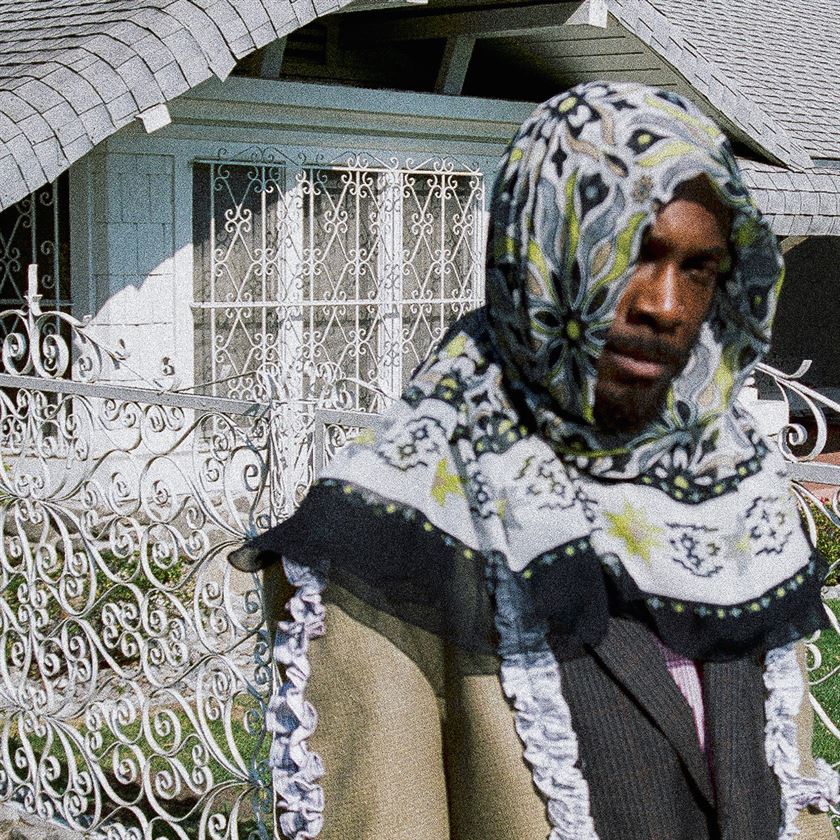It was only last year that JPEGMAFIA, or “Peggy” as his fans call him, released his breakthrough album “Veteran,” and established himself as one of the newest and most unique names in experimental hip-hop. Not your average rap project, the abrasive album was an almost 50-minute experience of artistically chaotic production which could only be matched with Peggy’s unique style of rapping.
The project landed a spot on almost every major music journalist’s best albums of the year list, got Peggy opportunities to perform at Coachella and tour with Vince Staples and made him an in-demand feature, appearing on projects by Denzel Curry and Flume, to name a few.
A year later, Peggy has released his highly anticipated follow-up, “All My Heroes Are Cornballs.”

JPEGMAFIA received popularity after his breakthrough album “Veteran” was released in 2018.
Image from JPEGMAFIA’s BandCamp
The production is just as creative, the lines just as clever and the performances just as impassioned, but having finally made a name for himself in the music world, Peggy chooses to take a far more tame, and at times, a more personal approach on this album.
Of course, for a JPEGMAFIA album, “tame” is relative. The opening track, “Jesus Forgive Me, I Am A Thot,” kicks off the album with a mix of shattering glass and a noisy crowd. The track features a beat sounding almost like elevator music, interrupted by all sorts of sound effects.
The album finds Peggy abandoning his typical style of yelping, rage-filled rapping. It isn’t gone completely, but this album features a more relaxed Peggy. He also chooses to sing a lot on this album. Some tracks, like “Rap Grow Old & Die x No Child Left Behind,” see him switching from singing to rapping, but others, are entirely sung. “Life’s Hard, Here’s A Song About Sorrel” is a brief musical transition in which Peggy sings about the traditional Jamaican drink, sorrel. I could picture him smiling and holding a glass as he sings:
“Drink it when I want to/Sip it when I want to baby.”
He’s no Frank Ocean, but Peggy finds a way to make his playful and crackly approach to singing work. At times, the singing even results in a fantastic performance, most notably on “BasicBitchTearGas,” in which Peggy covers a section of TLC’s “No Scrubs.” With very little added effects, he does a pretty good job singing dreamily over a simple, but fitting, instrumental.
Fans of Peggy’s boastful and unapologetic lyrics will get a lot from this album.
An excellent example is “Beta Male Strategies,” containing lines such as:
“Young Peggy, I’m a false prophet / Bringin’ white folks this new religion / My fans need new addictions.”
He then goes on to deliver one of his most aggressive verses on the album in which he calls out people who act tough online:
“Say what you said on Twitter right now / You only brave with a board and a mouse / You wasn’t talkin’ when I put you in the ground.”
Another great example is “Post Verified Lifestyle,” with lines like:
“Oh, you think you up and coming, G? / Nah up and comers think they really me,” and “I’m bungie jumpin’ to my destiny / Post verified cause these (censored) really think a handle could handle me.”

JPEGMAFIA is one of the newest experimental hip-hop artists on the scene.
Image from JPEGMAFIA’s BandCamp
Although Peggy offers plenty of his typical lyricism, he also has some pretty vulnerable moments on this album. This becomes noticeable in the second track, “Kenan Vs. Kel,” when Peggy alludes to some insecurity, either past or present, that he may have in terms of his ability to make good music:
“How we gon make this work? Facts / But like how can I make a good beat? / I get nervous when (censored) want features / How I’m gon make this work?”
A song that really stands out on this album is “Free the Frail,” which contains some very vulnerable lyrics from Peggy. He lists off many insecurities, often using interesting pop culture references:
“I feel afraid, this Easy A, I’m feelin’ framed / I wear a mask, I see the Banes / I’m still ashamed.”
The production also seems a bit more retrained too, at least for JPEGMAFIA standards. Quite a few songs contain fairly dreamy instrumentals, like the floating synths on “Grimey Waifu” or the ethereal wails on “BBW.”
Though the sound is different, there’s certainly just as much creativity as there was on “Veteran.” The song “PRONE!” heavily features digitally produced drums and guitars to match Peggy’s punk influenced rapping on the song, while “DOTS FREESTYLE REMIX” contains one of the most interesting beats on the album, an instrumental literally made from recordings of crackling fire with some added effects.
I was surprised that this album didn’t have any songs that go as hard as some of Peggy’s previous hits like “Baby I’m Bleeding” or “Puff Daddy,” but it felt rewarding and refreshing to hear a down to earth approach.
There is still originality within the production and rapping of Peggy’s earlier music. But like with his previous albums, “All My Heroes Are Cornballs” may rub the average listener the wrong way. However, this is a must-hear experience for any fan of experimental music.
Leading up to the release of this album, Peggy hyped it up by frequently joking that his fans would be “disappointed.” After listening to this album all weekend, I’m anything but.



